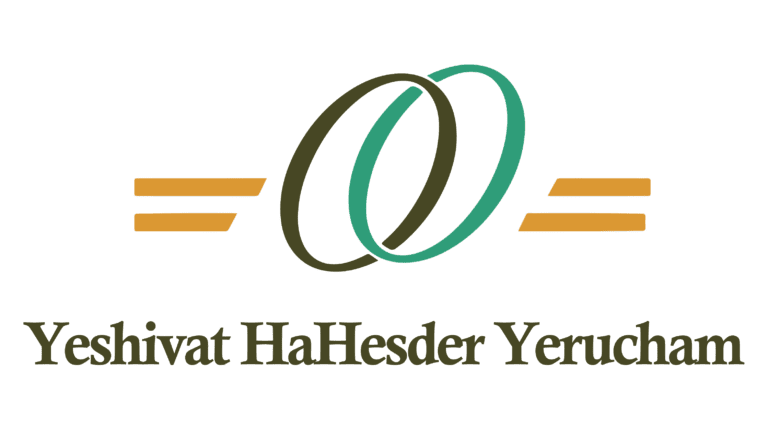Yeshiva overview
The Yeshiva: An Overview
Yeshivat Hahesder Yerucham was founded by Shmulik Ben-Shalom and Rabbi Eliyahu Blumenzweig as an institution for in-depth Torah learning and Avodat Hashem that strives to cultivate a student body that learns seriously, and views the Torah as the center of their lives, while remaining actively engaged with their local communities and the State of Israel.
In a primary sense, the yeshiva is focused on in-depth Talmud study. The intensive learning experience that forms the heart and soul of our Beit Midrash, is rooted in our faith in the profound truth of the Divine Torah and our conviction that an encounter with God begins with profound spirituality. The climax of our Talmud study is Rabbi Eliyahu Blumenzweig’s shiur klali, an extensive Talmudic lecture delivered weekly to the entire yeshiva.
Our approach to learning is applied to other areas of Torah too, from Jewish thought and philosophy to the way that we analyze current events.
Our Jewish thought curriculum coincides with Rav Kook’s directive to teach various areas of Jewish thought in yeshiva: Aggadah, ethics, Jewish philosophy, and Chasidism. By studying these spiritual aspects of the Torah, we aim to revive an aspect of Torah learning that was often neglected during our long exile. The yeshiva dedicates a lot of time and resources to our extensive, systematic, and in-depth study of Jewish thought.
Beyond aspiring to excel academically, we are also committed to molding our inner spiritual world through prayer, also known as “the service of the heart.” Prayer and Avodat Hashem are a primary focus area in the yeshiva during the holidays and other special occasions. We believe that accumulating Torah knowledge is not enough and we must also cultivate our students’ inner worlds and foster an atmosphere of spirituality in the yeshiva.
Recognizing that these years are critical for our students’ personal development, the yeshiva encourages students to be devoted to Klal Yisrael while maintaining an awareness of each student’s unique spirit and approach to the Torah. Accordingly, students are offered personal mentoring and meetings to enable them to delve into these aspects of Avodat Hashem.
The older students and Kollel members are of central importance to the yeshiva. From their sixth year in yeshiva, students are integrated into advanced Halakhah and Jewish thought study programs. These programs are a meaningful addition to the curriculum studied during their earlier years at the yeshiva.
A Beit Midrash with Windows to the World
Since its founding, the yeshiva has aspired toward truth and compassion. Truth leads our way when we work hard to fully understand the multi-faceted texts and Talmudic dilemmas we study, while compassion drives us to make the world a better place by giving to our local environment and larger social circles throughout our lives. We believe that truth and peace can be synthesized and that being engaged in deep dialogue with various aspects of truth yields a form of Torah study and observance that promotes unity and harmony, rather than division and distance.
Recognizing the deep connection between Hashem, His Torah, and the Jewish People, the yeshiva teaches its students to assume responsibility for Am Yisrael, care about others, and take initiative. We strive to cultivate a form of Torah study and observance that is relevant to the needs of our time and age. This dream makes the yeshiva a hesder yeshiva, an institution that combines military service with Torah learning.
The yeshiva was founded in the town of Yerucham as an outgrowth of our deep belief that Torah must be connected to Am Yisrael, specifically in a time of kibbutz galiyot as the nation returns to its homeland and flourishes here. This is part of implementing what we study. Our students and alumni teach and disseminate Torah throughout the town of Yerucham, and many of them bring the yeshiva’s spirit to their homes and communities around the country, some of which were founded as branches of the yeshiva’s vision and way of life.
Yeshiva Faculty
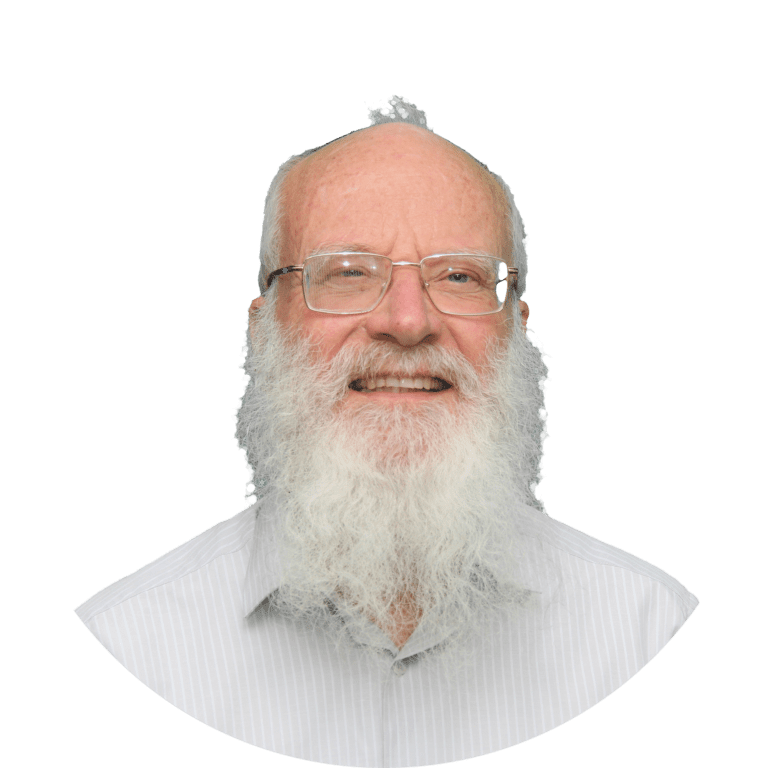
Born and raised in Jerusalem, Rabbi Blumenzweig studied at Yeshivat Netiv Meir, and later joined the founding class of Yeshivat Har Etzion and became one of the first alumni to teach at the yeshiva. Later, Rabbi Blumenzweig taught at Yeshivat Yamit (headed by Rabbi Yaakov Ariel) and headed the Beit Midrash program at Beit Morasha (alongside Rabbi Shagar). In 1994, he was approached by Shmulik Ben-Shalom, the devoted administrator of the yeshiva for many years, and asked to come and start a hesder yeshiva in Yerucham. Rabbi Blumenzweig answered his call, moved to Yerucham, and founded the yeshiva.
Rabbi Blumenzweig's shiur klali, a Talmudic lecture delivered to the entire yeshiva, is a weekly highlight at the yeshiva. These lectures are characterized by intellectual clarity and depth and challenge students to understand things comprehensively. These lectures encapsulate the spirit of intense study instilled by Rabbi Blumenzweig in the yeshiva.
Since the events of the Disengagement in 2005, Rabbi Blumenzweig has become highly involved in discussions among Religious-Zionist rabbis and represents them in various forums that seek to promote peace within the Religious Zionist community and Israeli society at large.
Through the years, Rabbi Blumenzweig's students have edited and published several of his teachings. In 2015, his book on Shvi'it was published. In 2021, "Ve’hithalakhti Be’tokhakhem," a two-volume series of his fascinating talks on the weekly parashah, was made available.
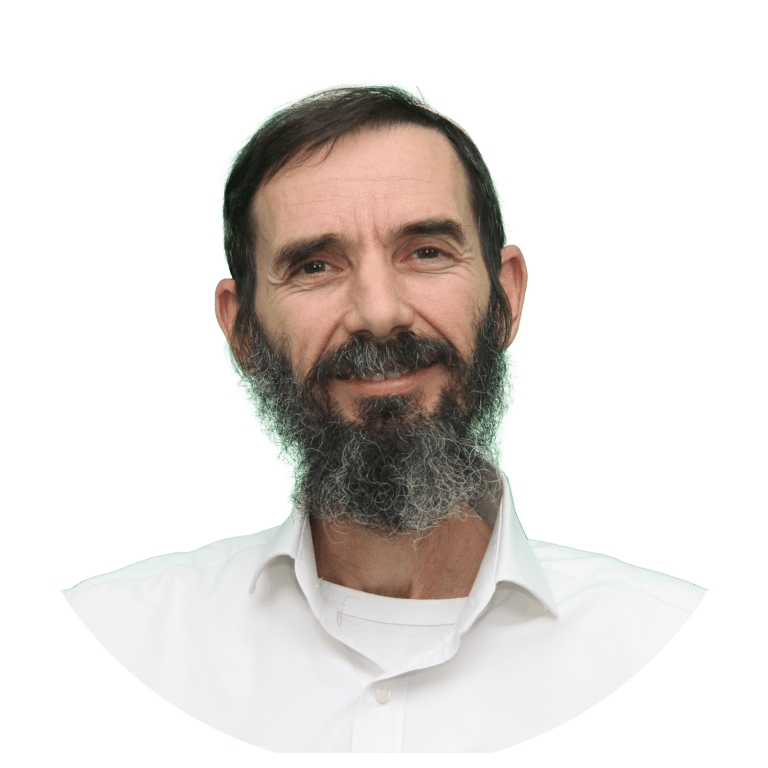
Rabbi Uriel Eitam was raised in Petah Tikvah and is an alumnus of the AMIT Bar Ilan Yeshiva High School and Yeshivat Har Etzion. He joined the yeshiva as a senior student, and later became a teacher.
Rabbi Eitam spends his time studying, teaching, and producing original works on Jewish thought. His classes are characterized by unique breadth and depth in these areas. He has served as chair of the Bible and Jewish thought programs at the yeshiva for over a decade.
In 2018, Rabbi Eitam published a series of books that explore the thematic connection between the Jewish holidays and the Garden of Eden, "Ve’nahar Yotzei Mei'eden." In 2021, the book "Le’hashkot Et Ha’gan" was published, which discusses various points of interest in Tractate Sukkah. In 2022, Rabbi Eitam published the first volume of a series about the philosophical approaches of recent Jewish thinkers, "She’arim Le’haguto Shel Manitu."
In 2018, Rabbi Eitam was appointed Deputy Rosh Yeshiva alongside Rabbi Chaim Wolfson. In August of 2020, both rabbis became Roshei Yeshiva.
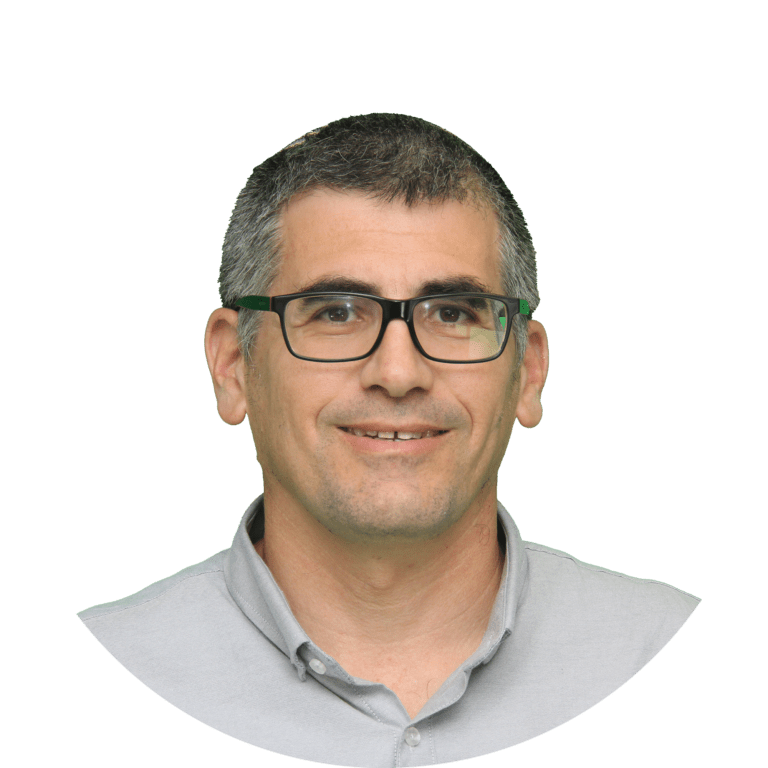
Rabbi Wolfson was born and raised in Jerusalem and studied at Yeshivat Netiv Meir. He spent several years at Yeshivat Ohr Etzion, Kollel Yad Brodman in Rehovot, and Yeshivat Har Hamor.
Rabbi Wolfson began teaching at the yeshiva in 2006. Beyond his extensive expertise in in-depth Talmud study, Rabbi Wolfson studies and teaches Chasidic writings. Rabbi Chaim's genuine concern for each student, combined with his broad vision and approach to the world, is apparent through the way he leads the yeshiva.
In 2018, Rabbi Wolfson was appointed deputy Rosh Yeshiva alongside Rabbi Uriel Eitam. In August of 2020, both rabbis became Roshei Yeshiva
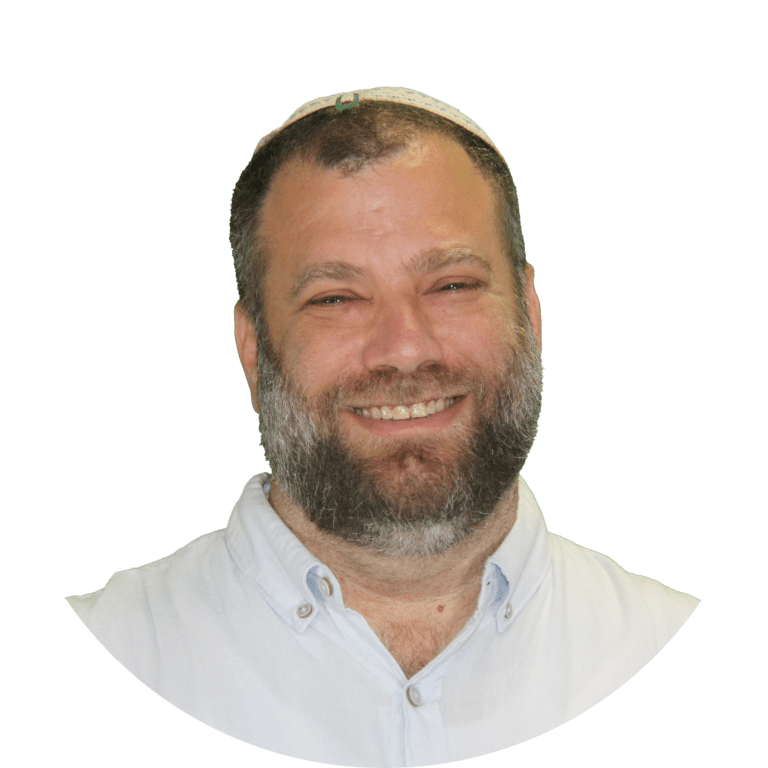
Rabbi Gnizi was born and raised in Bnei Brak and studied at Yeshivat Netiv Meir. He is an alumnus of the yeshiva's founding class. In 2005, Rabbi Gnizi began teaching at the yeshiva, thus becoming the yeshiva's first alumnus to join the faculty. Rabbi Gnizi's talks, classes, and approach to life are characterized by extraordinary honesty that has touched many students' hearts.
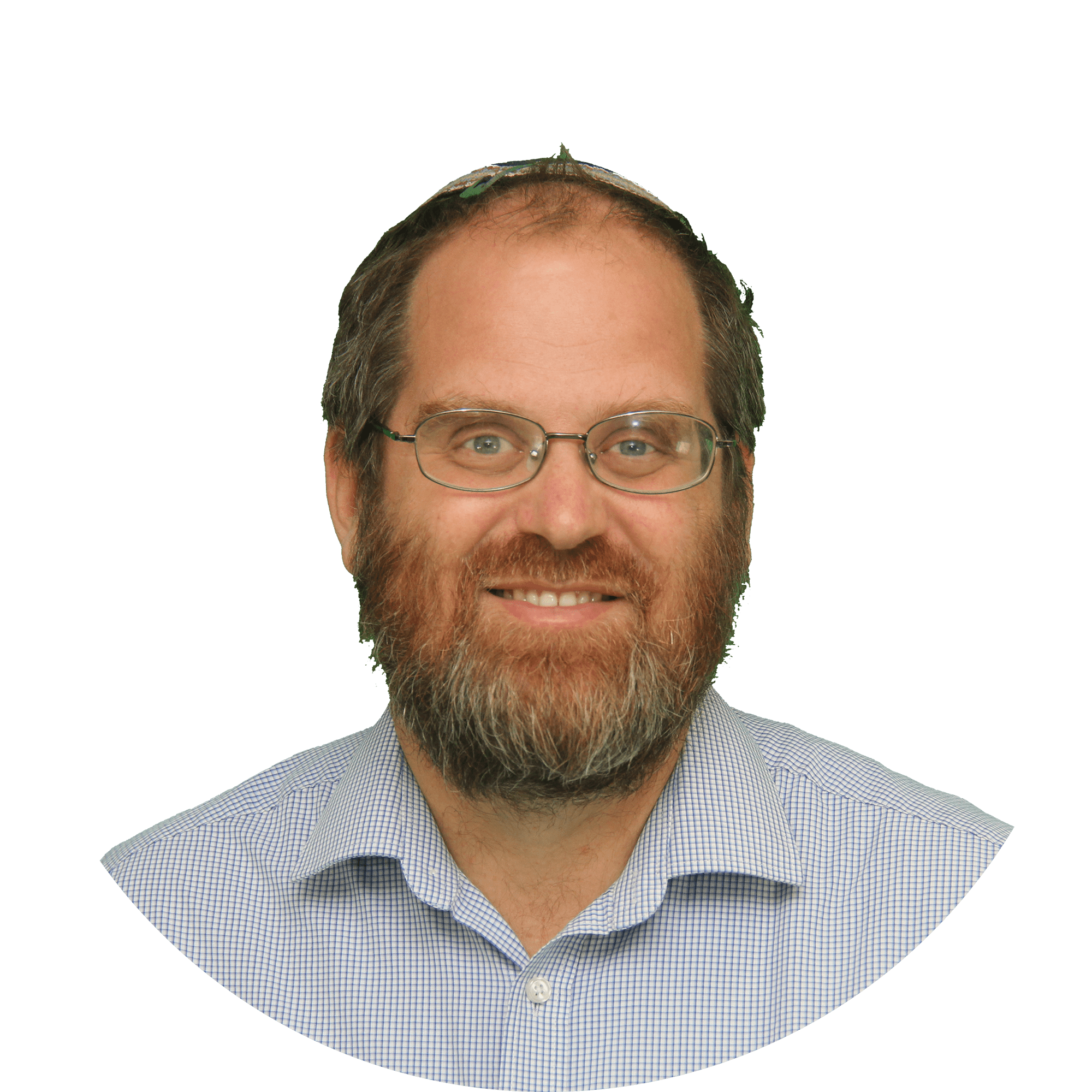
Rabbi Glazer was raised in Jerusalem and studied at Yeshivat Neve Shmuel. He continued his studies in the yeshiva (class of 1998) and began teaching in the yeshiva in 2007. Rabbi Glazer also continues to serve as a member of the yeshiva's charity fund executive committee.
Rabbi Glazer’s ever-present joy radiates from him and impacts his students. He is proficient in many areas of Torah. Among his many popular lecture series are his classes on the history of Talmudic scholars throughout the ages. In these captivating lectures, Rabbi Glazer exposes students thoroughly and methodically to the giants of years gone by, complete with their thoughts and unique contributions to Jewish society.
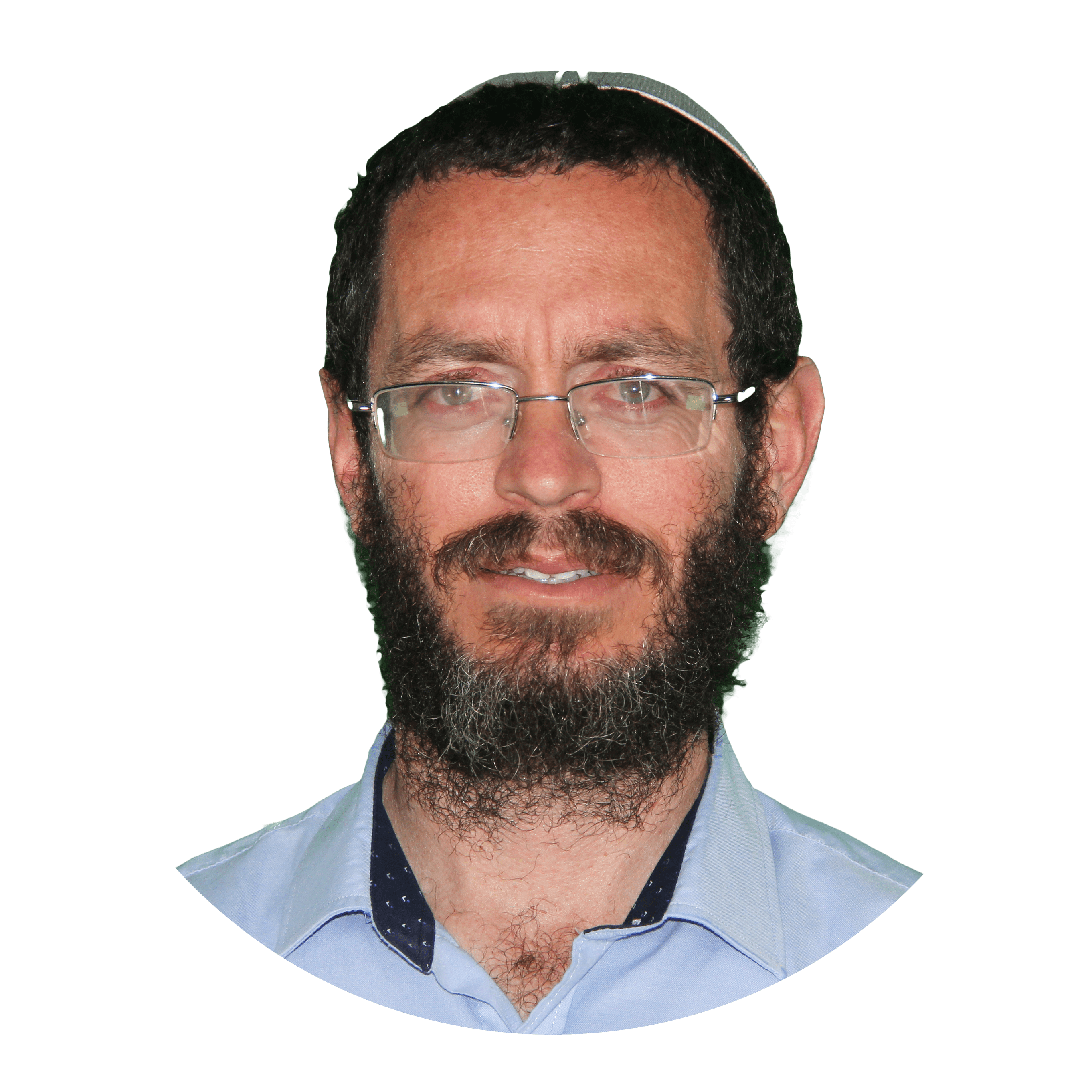
Rabbi Ben Pazi was born and raised in Mitzpeh Netofa and studied at Yeshivat Makor Chaim. He continued his studies at our yeshiva (class of 2004) and began teaching at the yeshiva in the summer of 2011. He also teaches at Hebrew University's Havruta program. Beyond teaching Talmud, Rabbi Ben Pazi is a leading figure in Tanakh studies at the yeshiva. His classes are unique and they attempt to reveal the hidden, more profound meaning of the peshat (the literal meaning of the biblical text). Rabbi Ben Pazi's sensitivity and compassion allow him to maintain close and unique relationships with many of our students and alumni.
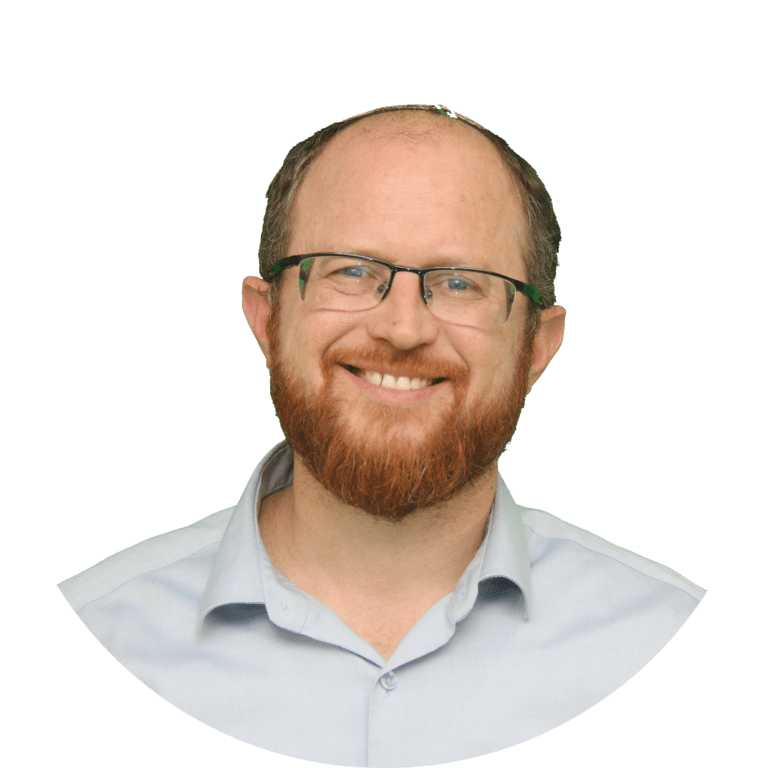
A native of Jerusalem, Rabbi Haber studied at Yeshivat Netiv Meir and continued his studies at Yeshivat Mercaz Harav and Yeshivat Har Hamor. He completed the dayanut program at Kollel Eretz Hemda in 2021 and received semicha as a dayan. Rabbi Haber joined our faculty in 2011.
Rabbi Haber is an expert Talmudist. He delves into the writings of medieval commentators while reviewing the specific debates as part of a broader context, creating a comprehensive halakhic structure. In this way, he instills in his students the close ties between the theoretical underpinnings of Torah and Halakhic practice.
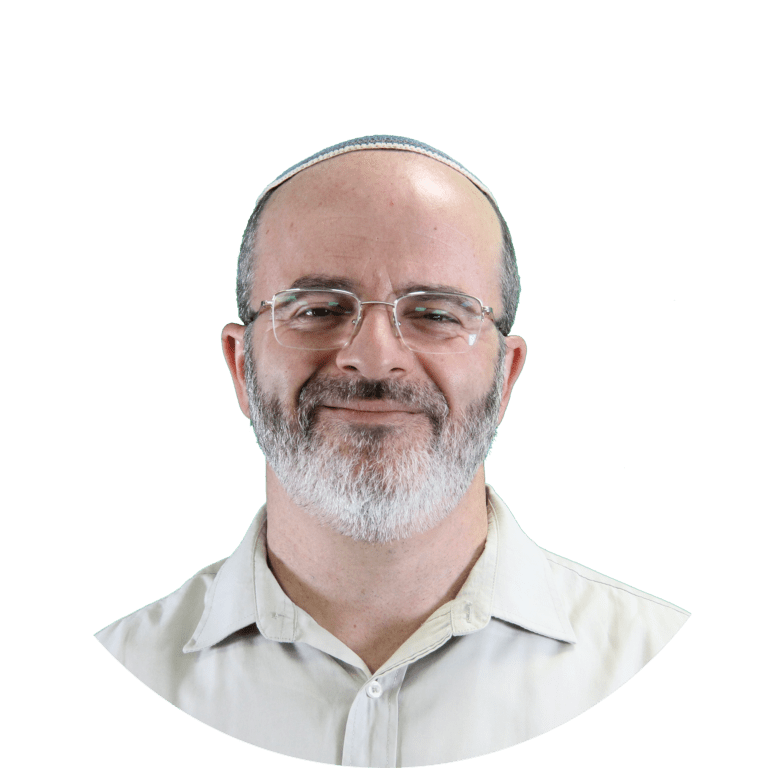
Born and raised in Jerusalem, Rabbi Shrir studied at Yeshivat Yerushalayim Le’tzeirim and Yeshivat Merkaz Harav. After studying at the dayanut program at Kollel Eretz Hemdah, Rabbi Shrir taught at the Rishon Le’tzion Hesder Yeshiva. In 2017, Rabbi Shrir joined our faculty and began teaching at the yeshiva.
Rabbi Shrir teaches in-depth Talmud, emphasizing the different stages of each Talmudic debate. He instills in his students his belief that each stage represents a meaningful message relevant to our spiritual lives. His training as a therapist and keen listening skills have enabled Rabbi Shrir to build unique personal relationships with many students.
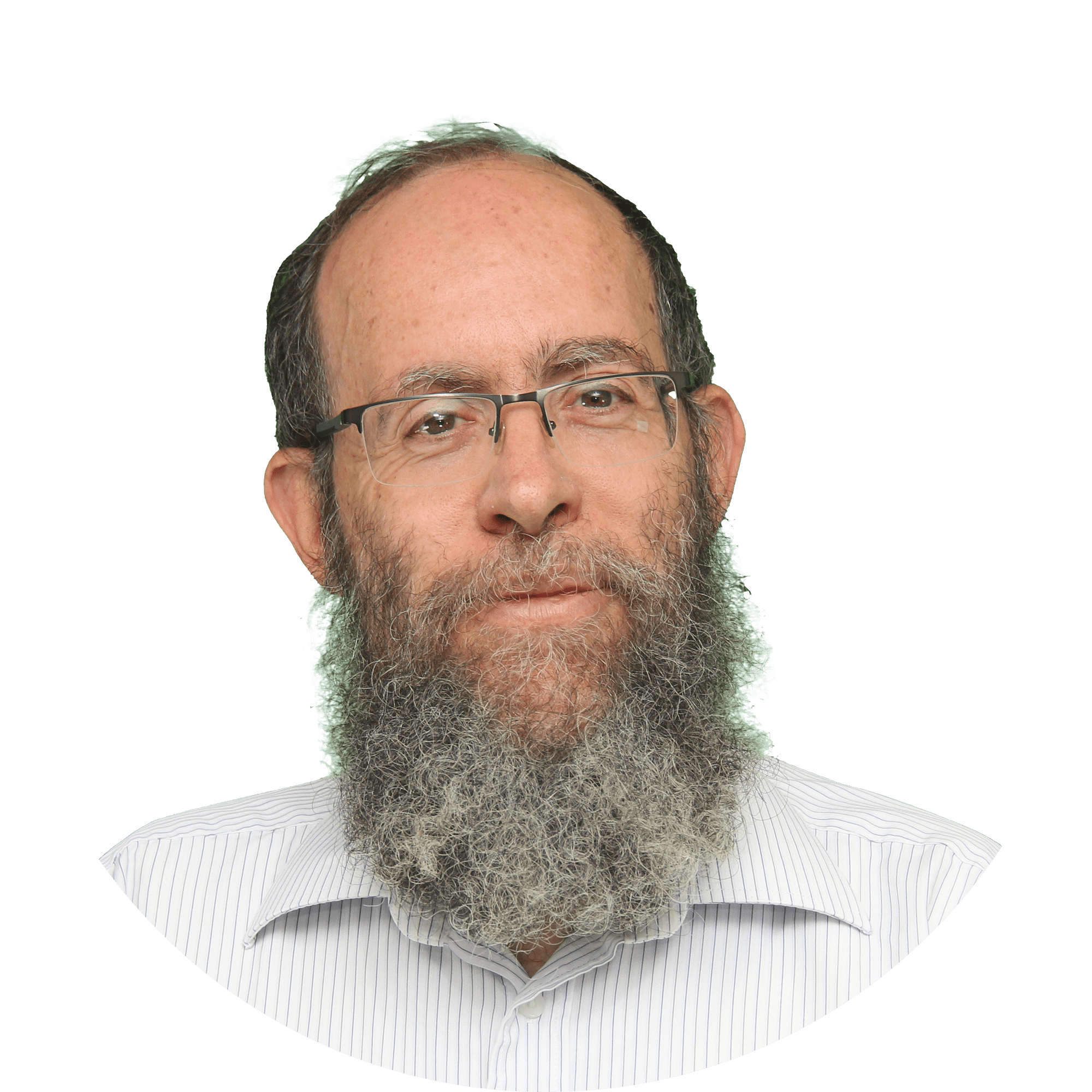
Rabbi Shmuel Ariel grew up, among other places, in Yamit and the Old City of Jerusalem. He studied at Yeshivat Shaalvim, Yeshivat Yerushalayim Le’tzeirim, and Yeshivat Makor Chaim (Shefa). He continued his studies at Yeshivat Otniel, later teaching and heading its Halakhah Kollel. In 2018 Rabbi Ariel began teaching at the yeshiva's Halakhah Kollel.
A well-known posek in religious-Zionist circles, Rabbi Ariel collaborated with Rabbi Elyashiv Knohl, z”l , in writing and editing two books on halakhah: "Ish Ve’isha" on family purity and "Ve’achalta Ve’savata" on Kashrut. Many people consult with Rabbi Ariel about halakhic issues, both orally and via the internet and various WhatsApp groups. Thanks to his extensive experience in the field of halakhah, his students at the kollel benefit not only from his vast theoretical knowledge but also from his practical halakhic knowledge, halakhic methodology, and learn different ways to address different people seeking halakhic guidance.
Furthermore, Rabbi Ariel gives classes on the foundations of Oral Law, and delves into issues such as tradition and innovation, and halakhic authority among other things. He has published two volumes on halakhic issues, in addition to many articles published in various halakhic journals.
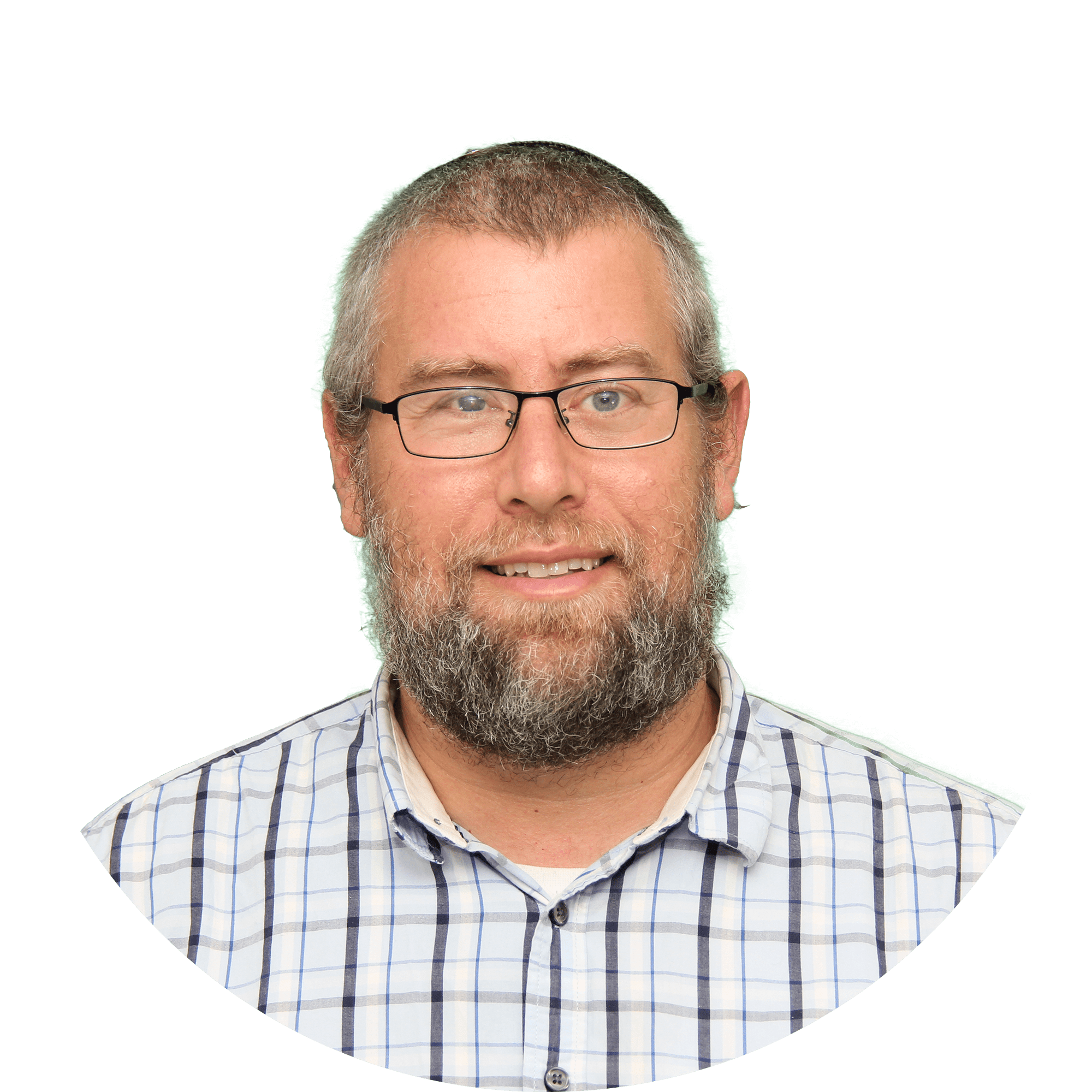
Rabbi Mittleman studied at Yeshivat Netiv Meir. He then studied for several years at Yeshivat Har Etzion. After teaching some years at Yeshivat HaHesder Shilo, Rabbi Mittleman began teaching at our yeshiva in 2009.
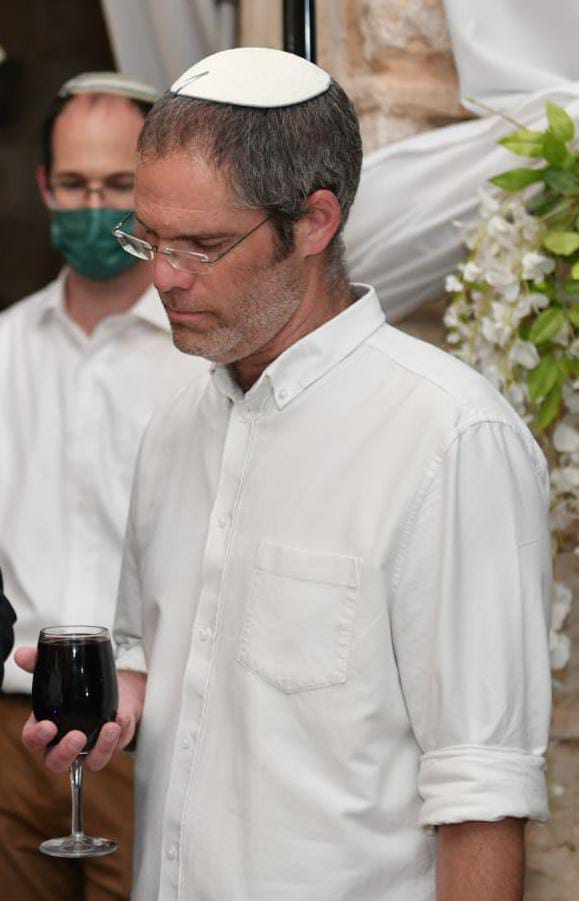
Born and raised in Jerusalem, Rabbi Weiss studied at Yeshivat Neve Shmuel and continued his studies at the yeshiva (class of 2000). In 2007, Rabbi Weiss founded and ran the "Yeadim Program," a leadership program for students of Ethiopian descent, which ran successfully for a decade. Since 2011 he has served as a spiritual mentor for yeshiva students and teaches classes on Jewish thought.
Rabbi Weiss's keen listening skills and extraordinary inclusiveness have led many students to seek his support and direction in their spiritual and personal development.
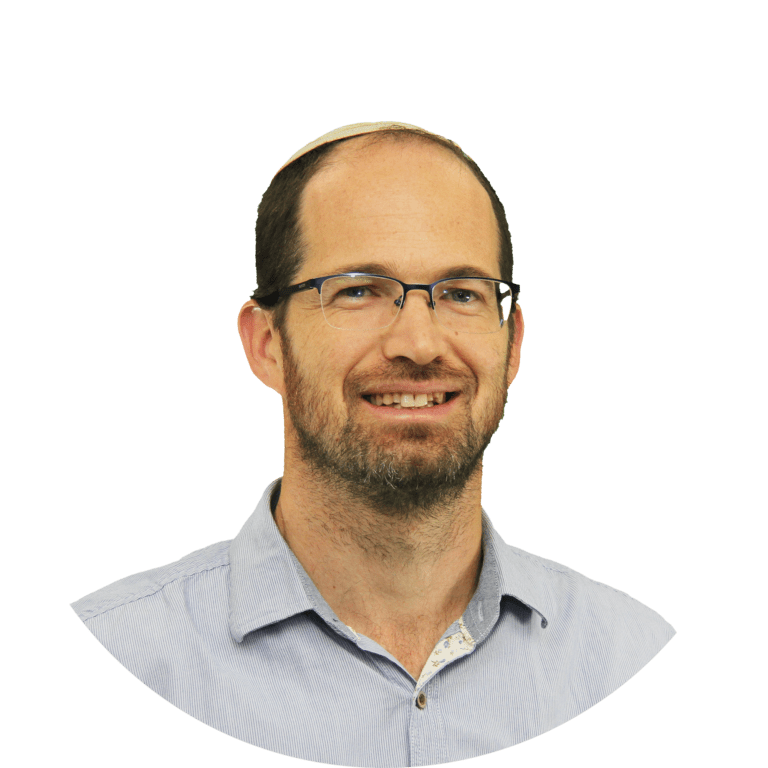
Born and raised in Ramat Gan, Ohad studied at Yeshivat Darchei Noam and continued his studies at the yeshiva. During these years, he served as an officer in the IDF and continues to serve as an officer in the reserves today. Ohad has served as the yeshiva’s administrator since 2012. His compassion and meticulous practicality make him a successful and beloved administrator.
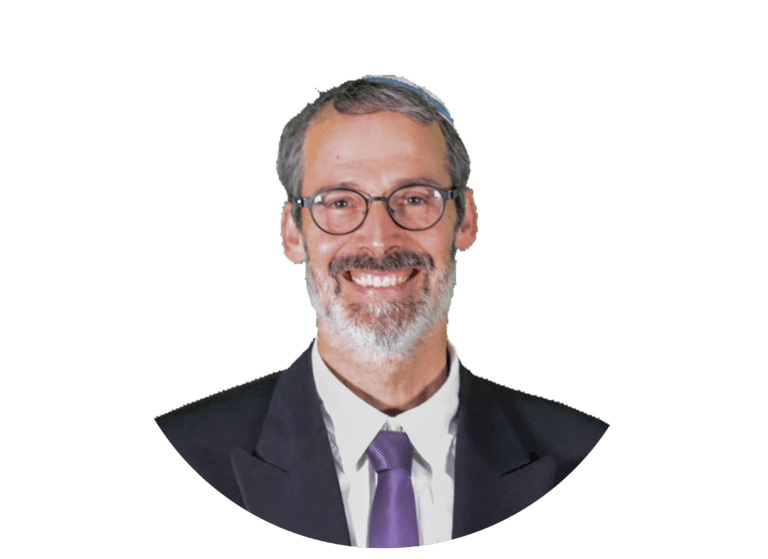
A native of Bnei Brak, Rabbi Kahane studied at Yeshivat Netiv Meir and continued his studies at the Kiryat Shemonah Hesder Yeshiva. During these years, he served as an officer in the IDF. He continued his studies at the dayanut program at Kollel Eretz Hemda.
In 2001, Rabbi Kahane joined the yeshiva faculty. In 2012 he was appointed a dayan, yet still comes to the yeshiva every week and teaches several classes. Rabbi Kahana spends Rosh Hashanah and Yom Kippur at the yeshiva and even comes for Shabbat occasionally. Our students are privileged to learn from Rabbi Kahane's wisdom and personality. His sensibility and sensitivity to living a life of Torah adds so much to our students’ lives.
The Yeshiva's Torah Study Programs
Jewish Thought
Just like the soul is the nucleus of the body, Jewish thought is essential to Torah study. We invest much thought and resources to the study of Jewish thought and give it a meaningful role in our learning experience. As one scholar eloquently noted: “In Yerucham, one’s mind is immersed in Talmud, but one’s heart is engrossed in Jewish thought.”
We follow the footsteps of Rav Kook, who called for a renaissance in the study of Jewish thought decades ago. During our long exile, this area of Torah was studied by few and the time has come to delve into it thoroughly by studying the various texts written by the giants of all schools of thought throughout the ages. We hope this study program will lead to the creation of original masterpieces in this area, so desperately needed by our generation. Rav Kook believed that this field of study forms the spiritual element of redemption.
Beyond studying Rav Kook’s writings, we aspire to follow his methodology. For this reason, we diligently study the writings of the giants of Jewish thought: the writings of Maimonides and Rabbi Yehuda Halevi, the Ramchal and the Maharal, Chassidism and Mussar, as well as contemporary thinkers.
We study Jewish thought methodically throughout our years in yeshiva, from simpler and basic texts to more advanced and complex writings. The program includes classes, guided study, and independent learning. It exposes students to a rich and deep world of faith and shapes their minds and spirits. The Jewish thought program affects the yeshiva’s general ambiance and leaves a deep impact on our alumni’s lives.
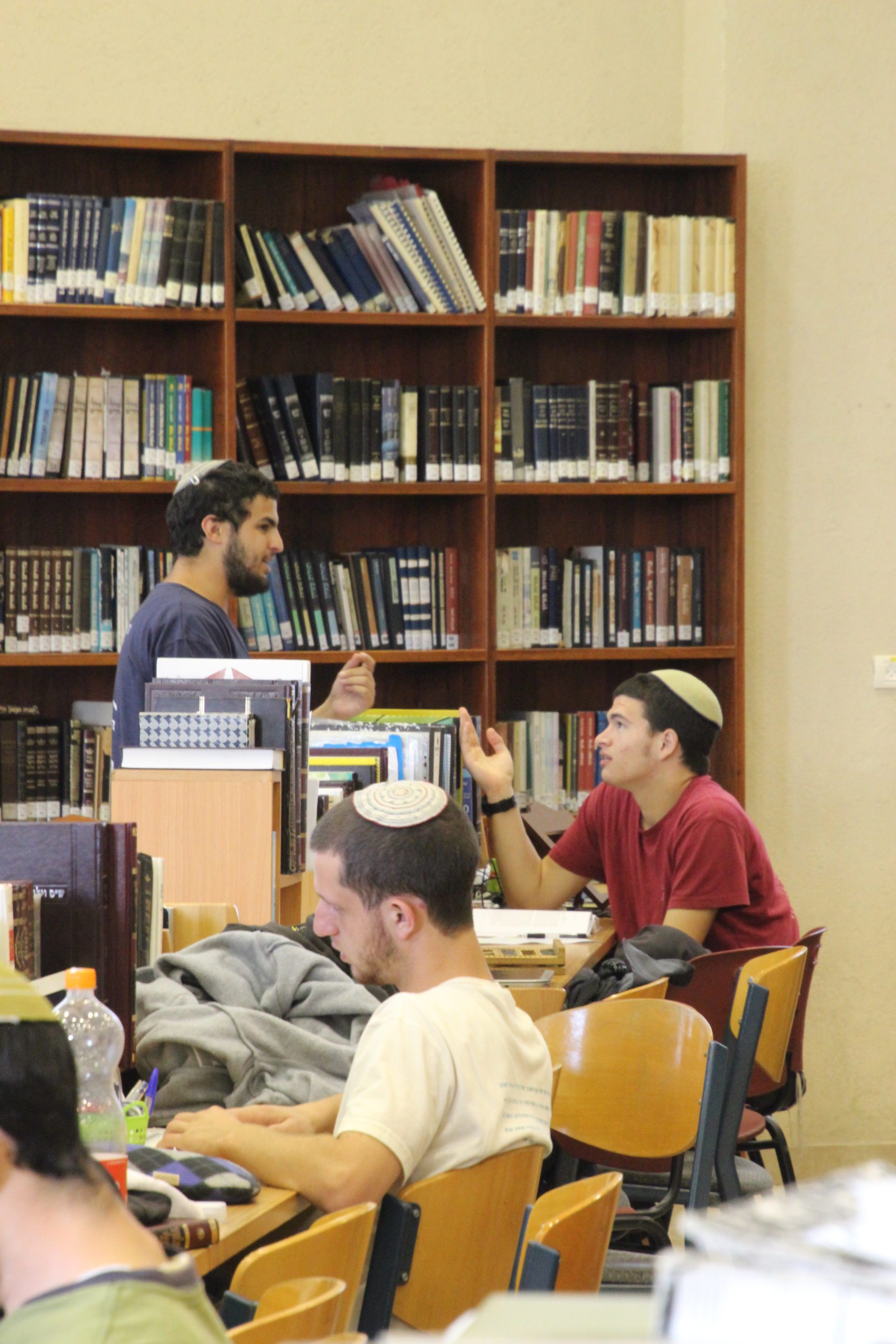
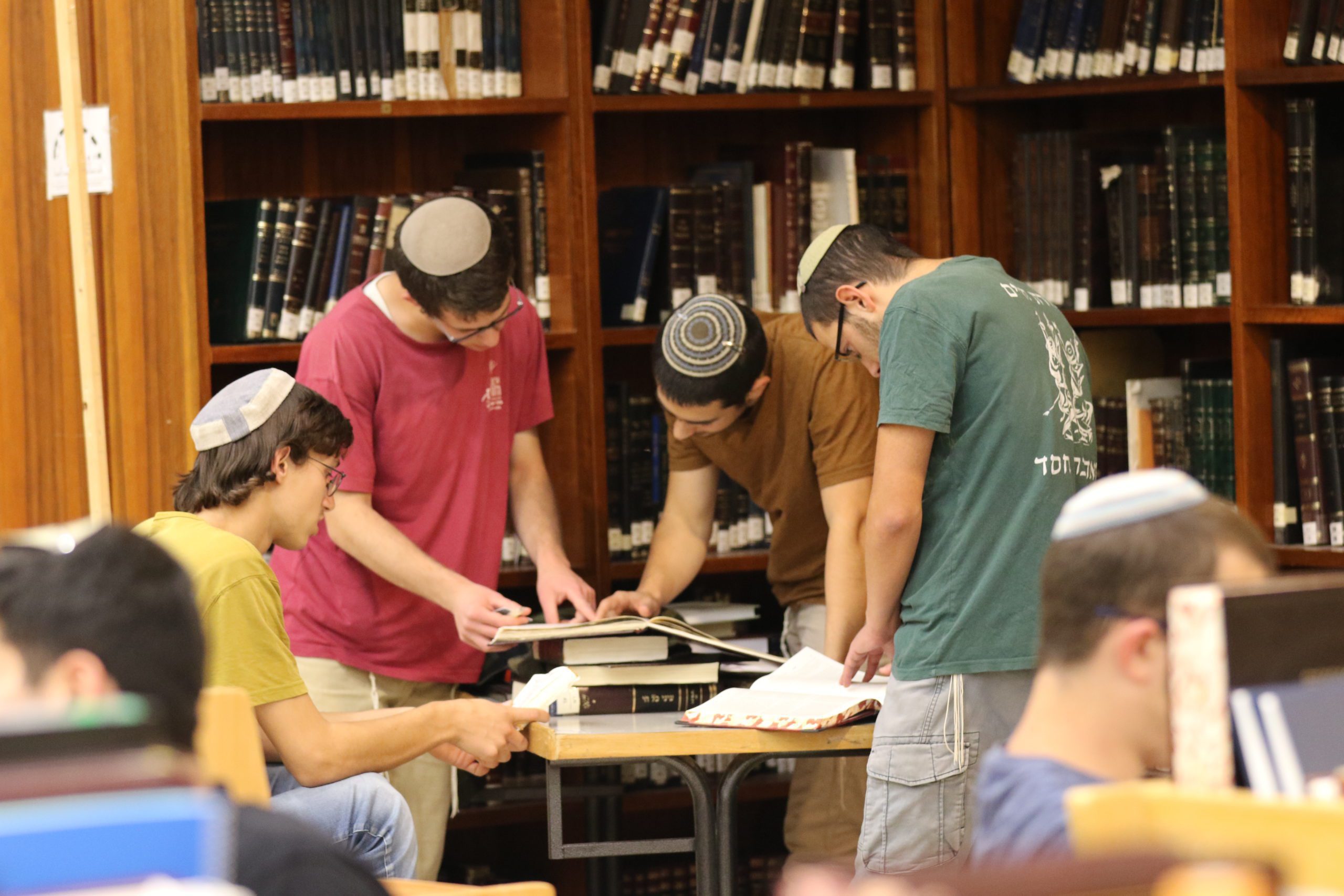
Kollel Iyun: Rabbi Ido Haber
The yeshiva’s Kollel Iyun was founded in 2018 to advance Torah study in general and in-depth Talmud study among the yeshiva’s senior students. Its members, students of shiur vav (year 6) and above, participate in two daily in-depth study sessions. The kollel program is predicated on our understanding that becoming a Talmud scholar requires deep spiritual roots and aptitude in learning. Spiritually, program participants deepen their connection to the Beit Midrash in which they study and grow, which impacts the nature of their learning and enables them to continue growing and teaching Torah to the entire nation. From an intellectual vantage point, establishing deep roots in learning requires commitment, investment of time, and arduous study that necessarily becomes more intense as one grows and develops.
Since we want program members to be actively involved in the Beit Midrash, kollel members study the same tractate studied during most of the year by the rest of the yeshiva. However, in order to learn the tractate in its entirety and dwell on its intricacies, kollel members continue learning this tractate throughout the entire year (even when the rest of the yeshiva switches to a different tractate). Furthermore, the pace at which they study and the subject matter they cover, are not subject to the yeshiva’s schedule.
Studying the same tractate for the entire year allows kollel members to learn each Talmudic debate comprehensively, compare it to corresponding sources, and delve into all the commentators, from medieval to contemporary. This approach leads to a holistic view of the tractate.
The kollel also provides members with the necessary structure to encourage and support in-depth Torah study:
- Each kollel member is required to give a class on a Talmudic “sugya” as well as author a paper about this topic.
- Beyond this, kollel members are also tested at the end of each term. These exams include questions that examine their grasp of the material they covered and a case study analysis based on the subjects studied during the term.
- We meet once or twice a year with Torah scholars who specialize in the field studied that year. During these visits, we not only benefit from these scholars’ vast knowledge, but also from the experience of meeting them personally.
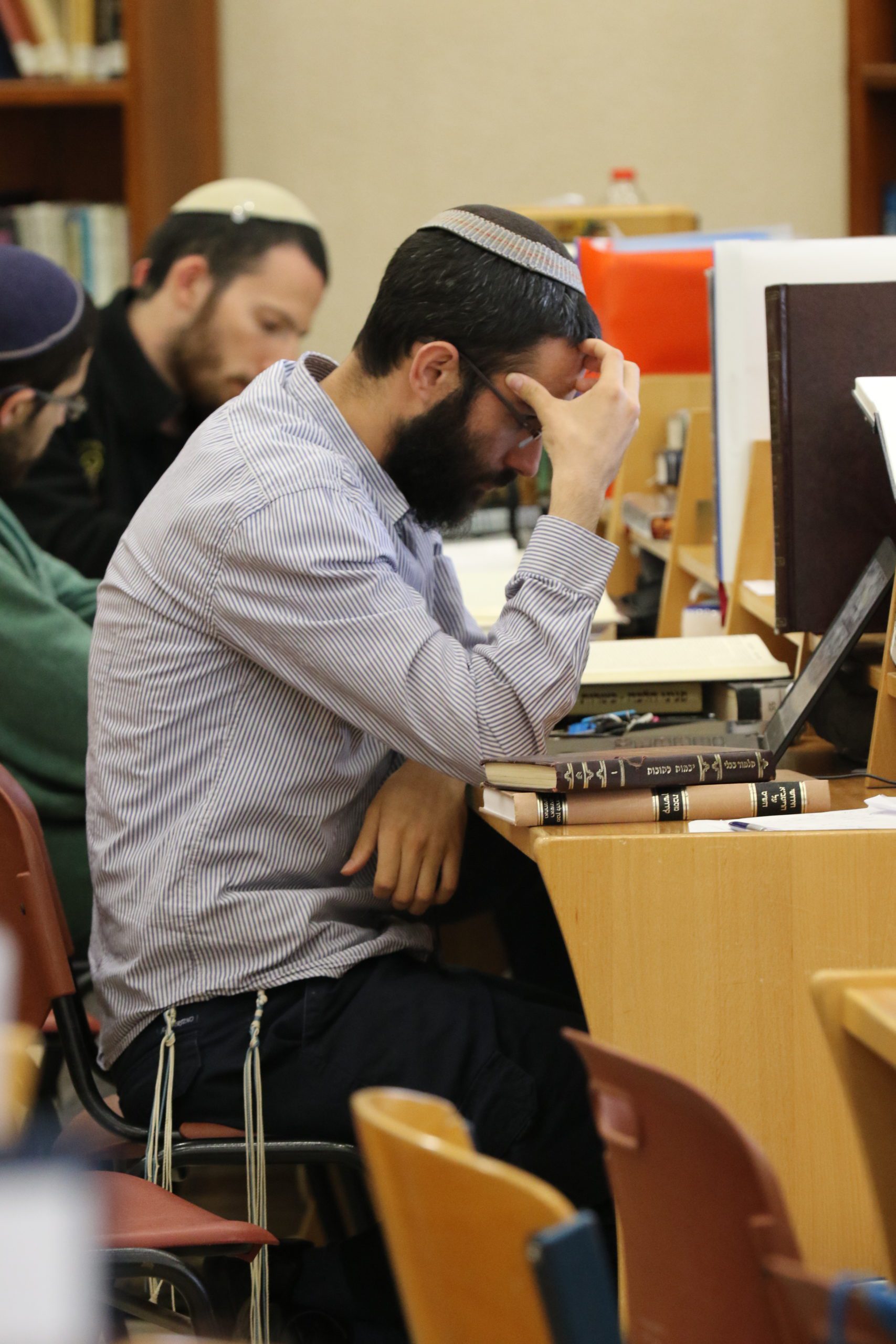
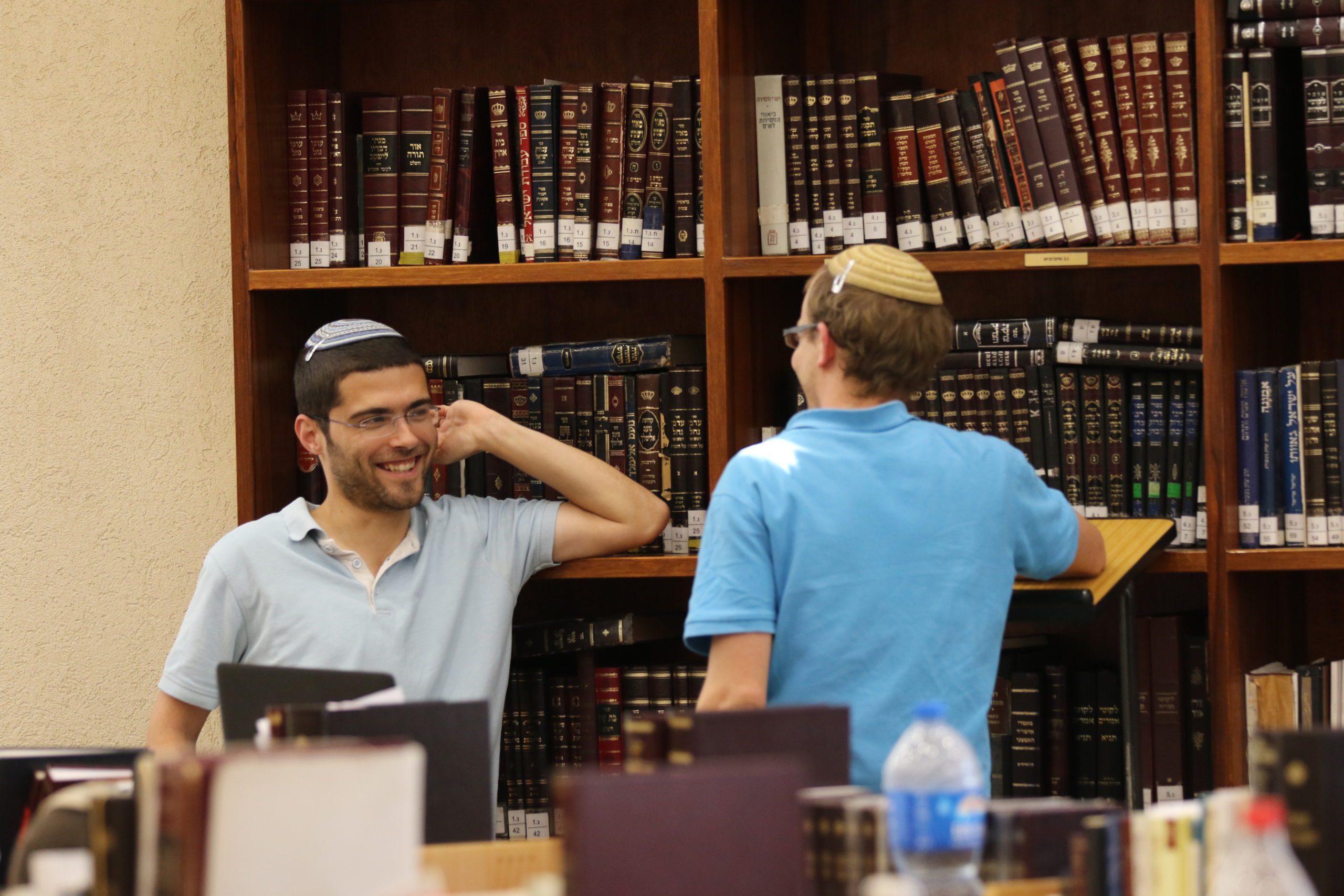
Halakhah Kollel: Rabbi Shmuel Glazer
The members of the Halakhah Kollel are senior students who have chosen to analyze practical halakhah comprehensively after studying Talmud for several years. While their curriculum is based on the Chief Rabbinate’s exams, the kollel members’ primary goal is not merely to pass the test but to master this area of Torah.
Kollel members study the central sources, from the Talmud to primary halakhic texts to the most recent opinions and halakhic literature on these issues. The program has three goals:
- To give students a clear understanding of each halakhic debate, including the various opinions and discussions that derive from it.
- To expose the theoretical underpinnings of each opinion, though in a more abridged fashion than the Iyun Kollel.
- To reach definite practical halakhic conclusions that take into account all possible scenarios and details.
